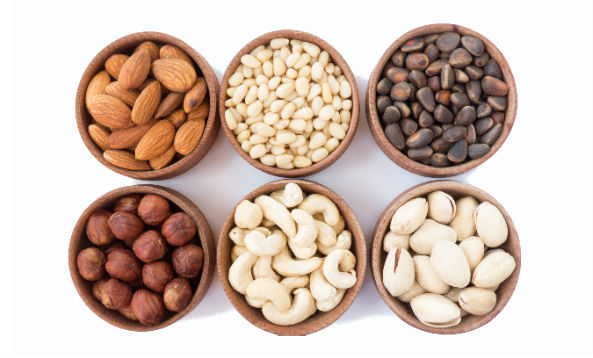That organic living is a conscious health choice
Activated Nuts 101
When activated seeds and nuts first hit our supermarket shelves, the first thing that crossed my mind was: is the nut industry trying to reinvent itself? Is it struggling to stand out amidst the burgeoning shelves of trendy superfoods – goji berries, maca powder, acai berries and the likes? Are there any strong research findings to back up the claims made by advocates of activated nuts?
But first things first. What are activated nuts?
Activated nuts are nuts which have been soaked in water and salt - which kick starts the germination or sprouting process - then dehydrated at a low temperature.
Those who buy activated nuts and seeds know they are not the cheapest option in the supermarket – 250g of Pili Pushers sprouted nuts sells for about S$30, almost twice the price of conventional nuts and seeds.
Loaded with protein, fibre, zinc and other essential minerals, raw nuts make easy and excellent health snacks. Nuts like the Pili Nuts are grown wild on volcanic soil and offer a great source of vitamin E. Eating a handful of nuts a day can help to lower cholesterol, reduce our risk of heart diseases and enhance brain function but the question is – do the nutritional benefits of activated nuts outweigh its hefty price tag?
Raw nuts contain natural enzyme inhibitors that block the absorption of nutrients by our bodies. Soaking the nuts breaks down their fibrous components and deactivates enzyme inhibitors, making nuts digestible and their nutrients more easily absorbed.
What else do we need to know about nuts?
Activated or not, nuts and seeds are superfoods and should be included in your diet.
When choosing nuts, be sure to check that nutritional claims can be supported with an official government certification logo such as Fair Trade, certified organic, non-GMO etc.
Sustainable farming practices prohibit harsh chemical sprays, which are known to damage human, animal and aquatic life. Conventional macadamia nut farmers in Australia use the fungicide Carbendazim - which has been linked to male infertility and birth defects - as well as an herbicide Paraquat, which could damage the hormone system.
The way to minimise your intake of these nasty chemicals is to choose what’s responsibly grown. Choose products with legitimate claims such as certified organic or non-GMO - activated or not, they are an amazing source of healthy fats, vitamins and minerals.



























_1672804154.jpg)

_1611290459.jpg)